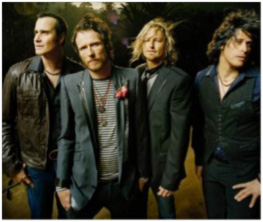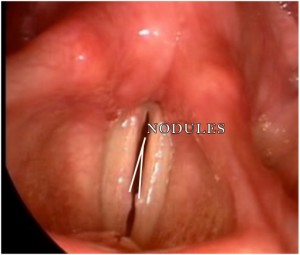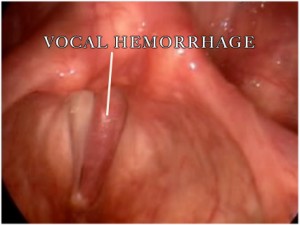- Question: How do the ingredients in e-cigarettes and vaporizers affect respiratory health? - August 16, 2019
- Bad Technique and Vocal Injury - January 9, 2019
- Is Edible Marijuana Dangerous for the Voice? Myths Dispelled - December 18, 2018
- Surprise! You have a hemorrhage - January 31, 2018
- Graves’ Disease: Treatment Overview - September 25, 2017
- Adele and the Stigma of Vocal Injury - July 11, 2017
- Vocal Curbside Consult: How does the thyroid affect the voice? - May 16, 2017
- Vocal Curbside Consult: How do hormones affect the voice? - May 3, 2017
- Vocal Curbside Consult: How do emotion and stress affect the voice? - April 17, 2017
- Vocal Curbside Consult: Vocal Recovery After Illness - April 7, 2017

Another musical phenomenal, another tour cancelled. The Stone Temple Pilots’ tour was cancelled today, after a voice doctor determined lead singer Scott Weiland would risk permanent vocal damage if he continued touring. In what seems to be an alarming new trend in the industry, singers are increasingly being pulled from tours for potential risks to their vocal cords. From Duran Duran to Kings of Leon, we are hearing more and more about artists who are put on voice rest to preserve their voices.
Why is this happening?
A significant part of the problem is the management. I had a young singer who was concerned because his manager had told him to “blow his voice out” with every performance. He was told that if he wasn’t hoarse at the end of a show, he hadn’t given it enough. I was horrified. Hoarseness is always a sign of problem. Even if it’s temporary, it means the vocal cords are swollen. Swollen vocal cords lead to permanent damage over time. Managers should certainly not be telling their singers to do things that are so damaging. This is why I teach my singers to be their own advocates. It is hard to defy your management but, by the same token, the right management would never risk their singers’ voices with such bad advice.
Another major culprit is the culture of music, particularly rock music. Rock music has its origins with rebellious, urban youth. Rule-following was far from a priority. This was music that came from the soul, that didn’t care about current norms, and that deliberately sought to defy them. The culture evolved and new instrumentation was introduced, but this culture of defiance and independence persisted. With that often comes a distrust for anything that seeks to change the sound of the rock musician. Anyone, including a vocal coach and voice doctor.
Of all the rock singers I see, very few have ever seen a voice doctor and even fewer have vocal coaches. Rock singers usually don’t perceive a need for these because the hoarseness they have is part of their rock sound. They don’t see it as a problem and aren’t interested in learning how to access a rock sound with good vocal technique to protect their voices.
What are the problems that come up?

When rock singers do finally come to medical attention, there is usually irreversible damage. Vocal scarring has developed from the singer attempting to add roughness to the vocal tone. This scarring is not reversible. Additionally, these singers may have polyps, nodules or other vocal cord hemorrhages (see images below). At this point, little can be done to return the voice to completely normal. There is still an opportunity to prevent further injury and improve the voice but that requires significant amounts of work.
Rock musicians are further plagued by working in vocally unhealthy environments (such as smoky bars), and with challenging music. All these factors combined make it very hard for a rock musician to have a successful career. If they do, their sound at the end of their career is rarely as good as the one they started with.
What do these problems look like?



What can be done?
This is not to malign rock musicians in any way. My real hope is to educate the rock singers that an amazing rock sound can be achieved with good vocal technique and vocal care. Catching issues early by working with a voice doctor and having a good voice coach prevents irreversible problems. There are many things that can be identified on examination by a voice doctor that a singer can do to lessen the risk of injury.
For the Stone Temple Pilots, its impossible to know is this is the beginning of the end of Weiland’s career. Two decades of hard rock singing, possibly without any good coaching, appear to have taken a toll. Perhaps it is not too late to reverse some of the problems he has. It is certainly not too late for the many rock singers just starting in their career. Prompt and early attention to the singer’s voice can prevent or treat most vocal problems.
For more information about professional voice use and care from a voice doctor, visit http://www.voicedoctorla.com.
To learn more about Dr. Reena Gupta or voice disorders, visit: http://www.voicedoctorla.com/



